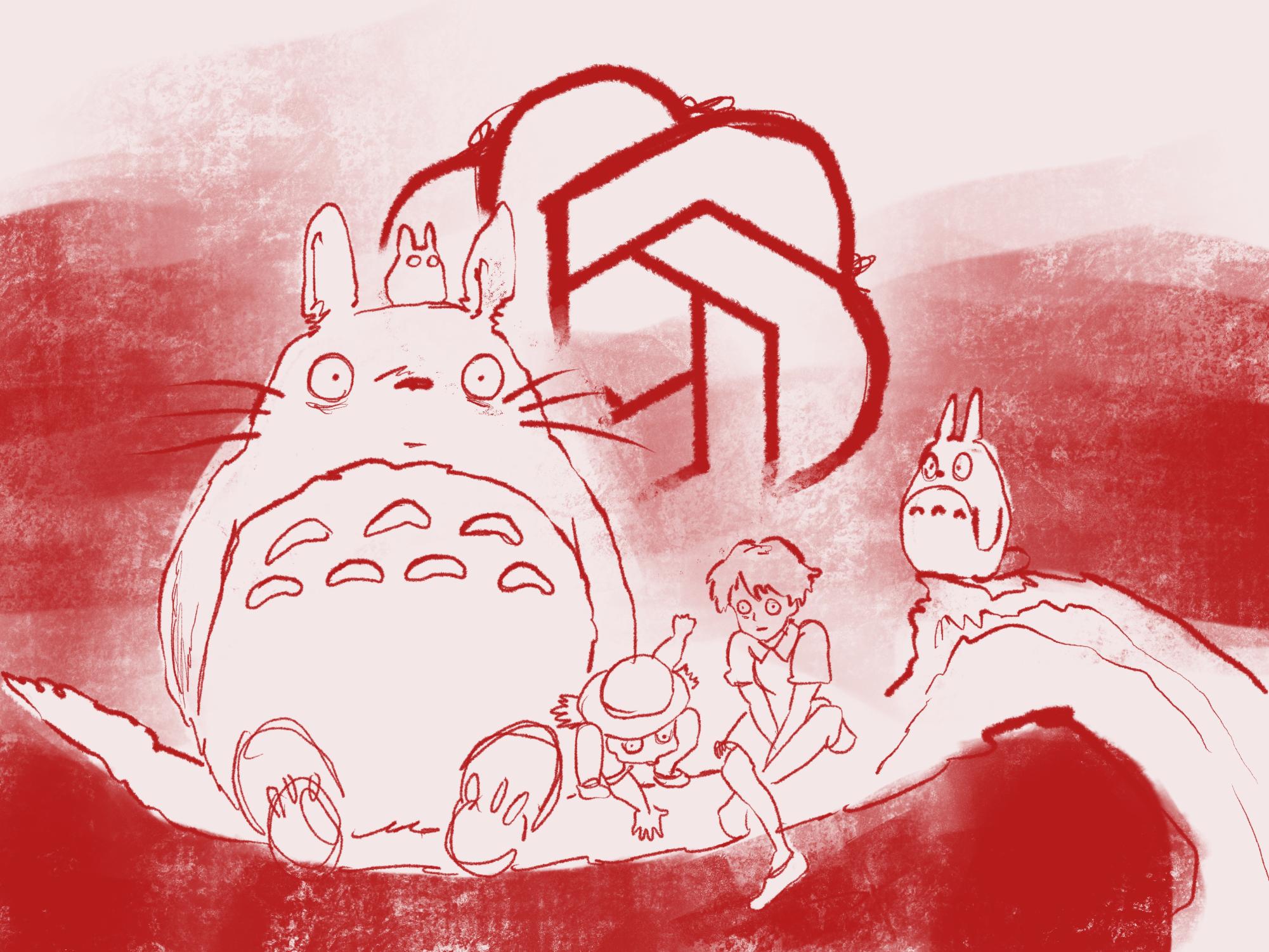Editorial | The GPT-4 Studio Ghibli trend again reveals a horrible misappreciation for human-made art


GPT-4, OpenAI’s latest generative artificial intelligence system, released on March 14. Among many performative upgrades, it massively improved its image generation capabilities.
The introduction of these new capabilities gave birth to an online trend of generating photos in the style of popular Japanese animation studio Studio Ghibli. While the trend may appear harmless and fun, it unfortunately indicates a future of art consumption that places far more emphasis on “looking cool” than artistic meaning.
Ignoring the potential violations and oversteps of copyright law, the ability to immediately generate images in an artist’s specific style completely waters down the messaging and intentions of their work.
Traditionally, illustrating something in the style of another artist takes dedication to studying their work, paying close attention to the technical skills required to replicate it. The hours spent referencing this source material inevitably would lead one to identify the themes and values behind the work they create. In this sense, making “fan art” using another artist’s style is an inherently appreciative process because of how much time and focus one must dedicate to that artist’s work.
AI-generated artwork is the antithesis of that — an inherently appropriative process that rips one desirable quality from an artwork and transplants it wherever the user sees fit with no regard for the artist or the values present in their work. This recent Ghibli trend has made this abundantly clear on an international scale.
On March 27, the White House’s official X, formerly known as Twitter, account posted an image generated in the Studio Ghibli style by GPT-4 of an ICE officer arresting a crying woman from the Dominican Republic. Three days later, the Israel Defense Force posted its own Ghibli-style image of its soldiers.
It does not take a film critic to identify the very obvious disconnect between the values present in Studio Ghibli films — appreciation for nature, the strength of family, the human toll of war and violence — and the values of ICE and the IDF. ICE has torn families apart and abused detainees, and the IDF has murdered tens of thousands of Palestinians since Oct. 7, 2023, and razed both the natural and man-made landscape of the Gaza Strip. To use the imagery of an animation studio diametrically opposed to the violent aims of these organizations for a “cute” post is a slap in the face to art itself.
This appropriation of art has happened since the dawn of generative AI, but GPT-4’s new improvements and popularity have made it clear that it is a problem that is only going to keep getting worse. GPT-4 has taken an art style that was carefully crafted over 40 years to encompass particular aesthetics and values, and it has compacted it all into a set of keys to jingle in front of our faces.
Art is political, and we are very lucky that we can identify political messaging solely from the style an artist has chosen for their messaging. If we embrace the ability to generate anything at all in any artistic style, we risk diminishing art’s personal and political power.
The White House and the IDF’s appropriation of Ghibli’s distinct style is the beginning of a future where “art” becomes just something cool to look at — a pleasing sight with no depth at all, used to promote whatever political agenda the user types in because GPT-4 doesn’t have the ability to appreciate or implement artistic intent.
Appropriation is all that generative AI is capable of, but it’s capable of it on an unimaginable scale. It’s time to look away from the shiny, jingly keys of ChatGPT and create something yourself — something that both you and the artist who inspired you can be proud of.
The Pitt News editorial is a weekly article written by the opinions editors in collaboration with all other desk editors. It reflects the collective opinion of the current Pitt News editorial staff.
Recent Posts
SGB introduces new governing code bill and addresses rumors of ICE on campus
At its weekly meeting at Nordy’s Place on Tuesday, Student Government Board introduced an omnibus…
Opinion | School should be in the summer
Although this may be controversial, I believe that from this data, it is evident that…
Weathering the storm: Pittsburgh teams have tackled some of the toughest environments
The end of the year in western Pennsylvania is always marked by two things —…
Notes From an Average Girl // Notes on Book Banning
In this edition of Notes From an Average Girl, senior staff writer Madeline Milchman writes…
To Be Honest // Yup, it is that damn phone
In this edition of To Be Honest, staff writer Evin Verbrugge writes about her phone…
Meaning at the Movies | Portraying Toxic ‘Adolescence’
In this edition of Meaning at the Movies, staff writer Lauren Deaton explores the mini-series…

